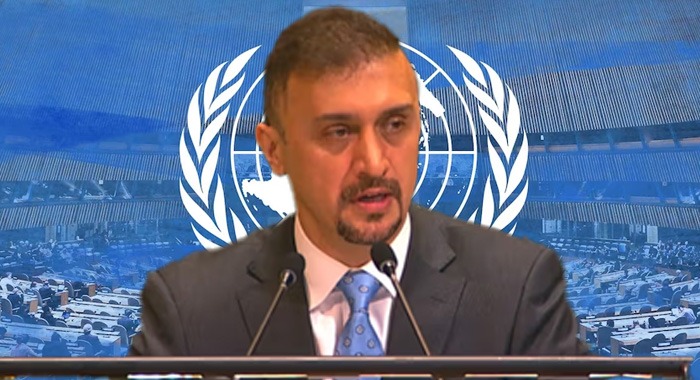Afghanistan’s representative to the United Nations, Naseer Ahmad Faiq, has made a powerful appeal to the international community, calling for a formal mechanism to hold the Taliban accountable for what he described as a deepening human rights crisis and governance failure since their takeover in 2021.
Speaking during a UN General Assembly session focused on Afghanistan, Faiq said the country stands at a dangerous crossroads, with its social, political, and institutional structures suffering under Taliban rule. He urged the global community to take decisive steps, especially in ending systematic gender discrimination and ensuring the rights of women and girls.
“The Taliban do not represent the people of Afghanistan in any way,” he stated, condemning the group’s ongoing suppression of public freedoms and disregard for citizens’ demands.
Faiq called on the UN Secretary-General to appoint a special representative for Afghanistan to help facilitate an inclusive dialogue involving political forces, civil society, and marginalised voices, particularly women.
He highlighted the institutionalisation of repression, pointing to the Taliban’s enforcement of morality codes, bans on girls’ education, closures of universities, and prohibitions on women working in NGOs. These, he said, illustrate a systematic campaign of exclusion and control.
Turning to the regional dimension, Faiq also condemned the forced deportations of Afghan refugees from Iran and Pakistan, urging both countries to uphold international humanitarian norms and respect migrants’ rights.
He further warned that extremist groups such as ISIS and al-Qaeda continue to expand under Taliban inaction, posing an ongoing threat to regional and global peace. The rise of jihadist training schools, he said, is fueling radicalisation and could push Afghanistan toward becoming a terrorist safe haven once again.
Faiq’s remarks underscore the growing concerns among Afghan exiled representatives and human rights advocates that the world is failing to hold the Taliban regime accountable, as the Afghan people continue to suffer under isolation, repression, and insecurity.





